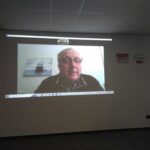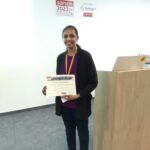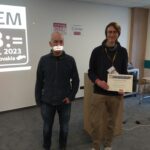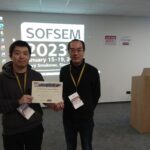SOFSEM 2023 includes all recognized core areas of foundational computer science and their interface with applied domains like artificial intelligence and data science, such as the design and analysis of algorithms and data structures, automata and languages, computational complexity theory, cryptography and security, data and pattern mining, distributed and parallel computing, formal models and methods, graphs and network analysis, intelligent systems, machine learning, multi-agent systems, planning and routing, quantum computing, and all other forms of science-inspired computing. Original contributions addressing fundamental research issues and emerging topics in other areas of (applied) computing are welcomed as well.
Topics:
- Algorithms and their analysis (including e.g. exact, approximate, online, parameterized, probabilistic, randomized, distributed, and streaming algorithms)
- Automata, languages, machine models, rewriting systems
- Computational complexity theory (incuding e.g. communication, descriptional, fine-grained, Kolmogorov, non-uniform, fixed-parameter and structural complexity)
- Computability, decidability, classical and non-classical models of computation
- Cryptographic techniques and security
- Data- and pattern mining methods (models, theory, algorithms)
- Discrete combinatorial optimization, heuristics, local search, SAT solvers, simulation
- Distributed and parallel computing
- Efficient data structures (including e.g. dynamic, geometric, and spatial datastructures)
- Experimental algorithmics, applications
- Formal models of systems (including e.g. concurrent, hybrid, reactive, mobile, net-based, and timed systems)
- Graphs and networks (including e.g. bounded-width algorithms and structural analysis)
- Intelligent algorithms (including e.g. artificial neural networks and evolutionary computation)
- Logics of computation, process models, program synthesis
- Machine learning, data-driven reasoning, deep learning
- Mechanism design, algorithmic game theory, multi-agent systems
- Network science
- Philosophy of computing and AI
- Robot algorithms
- Science-inspired computing (including e.g. algorithmic computational biology, quantum computing, and quantum information processing)






